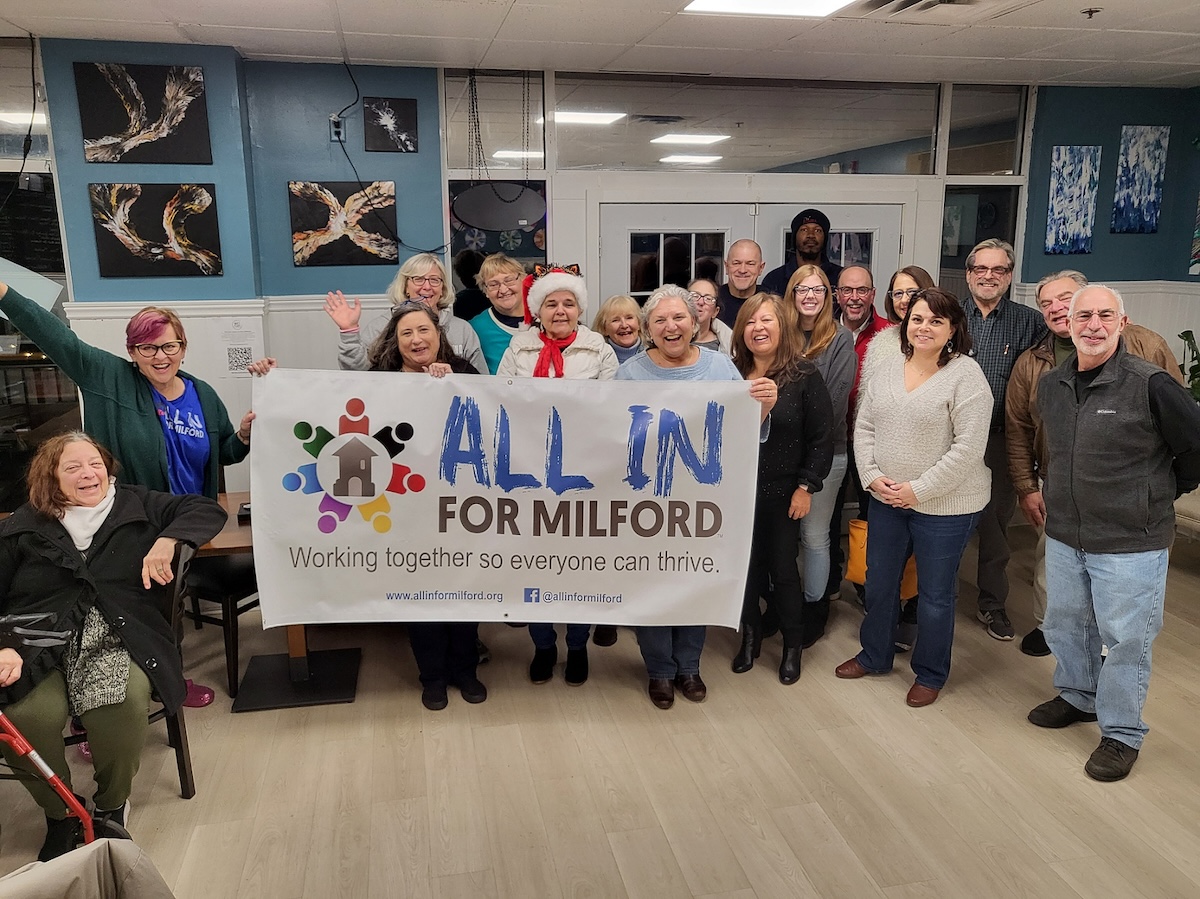All In: Working Together for Homes, Food, and Seats at the Table
All In: Working Together for Homes, Food, and Seats at the Table
In the Naugatuck Valley of Connecticut, a region once known for brass mills and manufacturing, neighbors faced a choice: let economic decline drive them further apart, or come together to reimagine what the future of their community could look like. That spirit is at the heart of All In, a grassroots movement proving that pluralism doesn’t mean everyone thinks the same—it means everyone has a place and a voice in the decisions that affect their lives. With support from the New Pluralists Healing Starts Here grant, the All In Alliances are showing how trust, dialogue, and patient organizing can bridge divides and spark change that lasts beyond any single campaign.

Collaboration Across Difference
When the last mill shut down, the Naugatuck Valley was left with abandoned industrial sites, economic uncertainty, a patchwork of communities with many different languages, work and educational histories, and opinions about how to improve life in their towns. Tension built through various elections and migrations, and came to a point during the COVID-19 pandemic. But instead of drifting apart, two longstanding organizations—the anti-poverty agency Team Inc. and the community and labor organizing network Naugatuck Valley Project—joined forces to build something new together, in partnership with residents and other local organizations. They called it All In.
Their goal was simple but ambitious: help people from every background and income level have a say in the future of their towns. Local alliances formed in seven towns and counting, bringing together residents, faith-based communities, nonprofits, businesses, and other groups in which local people had organized themselves. One of their priorities has been creating safe, affordable housing for everyone. Working community by community, residents organized for policy change around Accessory Dwelling Units (ADUs), founded and reactivated Fair Rent Commissions, and built support for expanding homeless services—even winning unanimous approval from a planning commission in an affluent suburb. None of it happened overnight. Every policy win started with kitchen-table conversations and a commitment to lead with relationships, not a pre-set agenda.
Organizing That Starts With People
This organizing process wasn’t about setting differences aside—it was about making space for them. The coalition trained fellow community leaders with time-tested tools like story circles, one-to-one relational meetings, and power mapping, so they could build shared power rooted in trust. They had to slow down, listen deeply, and grow something that would last beyond the honeymoon phase and quick successes of any single campaign.
Pluralism made a real difference: residents who once felt disconnected found a new purpose as civic leaders. Communities that had been divided by history and hardship began to see common cause. And the work didn’t stop when the meetings ended. Local leaders kept showing up for each other, building a foundation strong enough to carry future efforts forward.
All In reminds us that pluralism isn’t about everyone agreeing—it’s about everyone having a seat at the table. When we invest in relationships and do the work of building consensus across a whole community, in its full diversity, lasting change is possible.
“Every time you see actual change, it is because of residents coming together, over and over. And these are residents who, historically, would not have gotten in the same room together. You have staunch Trump supporters sitting alongside people who are still grieving and healing and hurting over what just happened from President Biden and to Vice President Harris. And yet they are still saying, ‘Well, how are we going to control the next 20 minutes before us?’ [At All In meetings] people are not yelling at each other; they’re not killing each other. And it’s not all unicorns either. It’s the work of saying, look, we’re going to agree to disagree, but here’s some of the stuff we do have common ground on, and we’re going to build that together.”